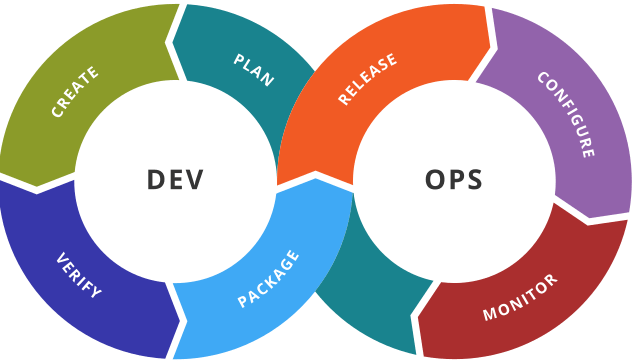DevOps for Organizational Agility and Business Success
This blog post introduces readers to the concept of DevOps, the benefits of the same to Organizations, and how to get started with it.


In today's fast-paced business landscape, organizations need to adapt to changing market demands, embrace new technologies, and deliver innovative products and services – all at lightning speed. This is where DevOps comes in, not as a department or a tool, but as a cultural shift that empowers organizations to achieve remarkable agility and reap significant business benefits.
What is DevOps?
DevOps is a collaborative approach that bridges the gap between development and operations teams. It's about breaking down silos, fostering open communication, and automating tasks to streamline the software development lifecycle (SDLC). This means developers and operations work together seamlessly, from conception to deployment and beyond.
The Benefits of DevOps
Implementing DevOps brings numerous benefits to organizations, including:
Faster delivery: DevOps practices like continuous integration (CI) and continuous delivery (CD) automate testing and deployment, enabling teams to release new features and updates quickly and frequently. This allows organizations to stay ahead of the competition and respond to market changes with agility.
Improved quality: DevOps emphasizes automated testing and feedback loops, ensuring that new features are stable and bug-free before reaching customers. This reduces the risk of errors and downtime, leading to a more reliable and user-friendly experience.
Increased productivity: Automation and collaboration free up developers and operations teams from tedious tasks, allowing them to focus on higher-value activities like innovation and problem-solving. This boosts overall productivity and efficiency.
Enhanced collaboration: DevOps fosters a culture of open communication and shared responsibility between development and operations teams. This breaks down silos, improves teamwork, and leads to better decision-making.
Reduced costs: DevOps practices like automation and streamlined processes minimize waste and rework, leading to significant cost savings. This allows organizations to invest more resources in growth and innovation.
Increased revenue: Faster delivery, improved quality, and better customer experiences lead to increased customer satisfaction and loyalty, ultimately driving higher revenue and market share.
Reduced time to market: DevOps enables organizations to bring new products and services to market faster, giving them a competitive edge and capturing market opportunities ahead of the curve.
Improved operational efficiency: Streamlined processes and automated tasks lead to reduced operational costs and increased productivity, freeing up resources for strategic initiatives.
Enhanced employee morale: A collaborative and supportive work environment fosters increased employee satisfaction and engagement, leading to improved retention and talent acquisition.
Greater resilience: DevOps practices help organizations adapt to change and recover from failures quickly, making them more resilient in the face of market disruptions.
Key Principles of DevOps
DevOps is built on a set of key principles that guide its implementation:
Automation: Automating repetitive tasks and processes eliminates manual errors, reduces lead time, and increases efficiency.
Continuous integration and continuous delivery (CI/CD): CI/CD practices enable teams to integrate code changes frequently and deliver them to production quickly and reliably.
Infrastructure as code (IaC): Treating infrastructure as code allows organizations to manage and provision resources programmatically, improving scalability and reducing configuration drift.
Monitoring and feedback loops: Continuous monitoring and feedback loops provide insights into system performance and user behavior, enabling organizations to make data-driven decisions and continuously improve.
Culture of collaboration: DevOps emphasizes the importance of collaboration, trust, and shared responsibility between development, operations, and other teams involved in the software development lifecycle.
Getting Started with DevOps
Start small: Implement DevOps principles in a pilot project to gain experience and build momentum before scaling up.
Invest in training: Equip your teams with the knowledge and skills needed to succeed in a DevOps environment.
Automate as much as possible: Focus on automating tasks to streamline the SDLC and reduce manual errors.
Foster a collaborative culture: Break down silos and encourage open communication between development and operations teams.
Measure and track progress: Monitor key metrics to track the impact of your DevOps initiatives and make adjustments as needed.
DevOps is not just a set of tools or technologies; it's a cultural shift that empowers organizations to achieve remarkable agility and business success. By embracing DevOps principles, you can break down silos, streamline processes, and unlock the full potential of your development and operations teams.
So, are you ready to join the DevOps revolution?
